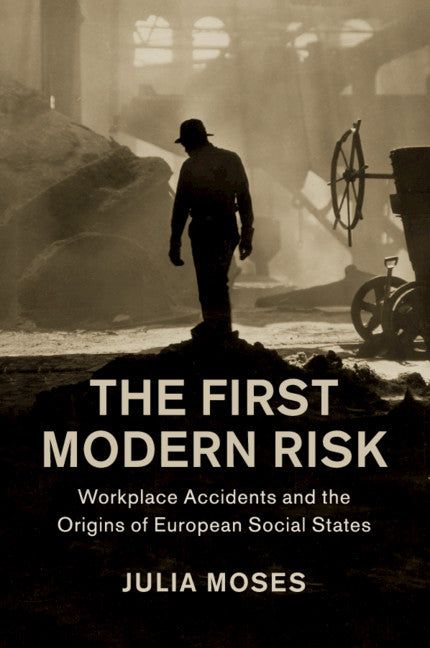Freshly Printed - allow 8 days lead
Couldn't load pickup availability
The First Modern Risk
Workplace Accidents and the Origins of European Social States
Examines Europe's first significant national policies on social welfare in the late nineteenth century, which had major implications for state-society relations.
Julia Moses (Author)
9781108443470, Cambridge University Press
Paperback / softback, published 14 November 2019
335 pages
15 x 23 x 2 cm, 0.51 kg
'The emergence of the European social state, which exemplifies much of the European Union, has roots in workplace accidents and the risks not only to individuals but to the larger community. In an industrializing society, is an individual solely responsible for mitigating risks of the work place? Does the employer have a role? What is the role of the state? Using a wide range of British, German, and Italian primary and secondary sources, and specifically focused on developments of the second half of the 19th century through the 1920s, this well-documented monograph uses a comparative approach to trace the development of the concept of risk and its connection to the social state, one that now provides an insurance-based social safety net. The argument is sound and carefully argued. Summing up: recommended.' T. F. Armstrong, Choice
During the late nineteenth century, many countries across Europe adopted national legislation that required employers to compensate workers injured or killed in accidents at work. These laws suggested that the risk of accidents was inherent to work and not due to individual negligence. By focusing on Britain, Germany, and Italy during this time, Julia Moses demonstrates how these laws reflected a major transformation in thinking about the nature of individual responsibility and social risk. The First Modern Risk illuminates the implications of this conceptual revolution for the role of the state in managing problems of everyday life, transforming understandings about both the obligations and rights of individuals. Drawing on a wide array of disciplines including law, history, and politics, Moses offers a fascinating transnational view of a pivotal moment in the evolution of the welfare state.
List of figures
List of tables
Acknowledgements
Abbreviations
Introduction
1. Accidents, freedom and modernity in the nineteenth century
2. Occupational risk, work and the nation state
3. Spreading risk, forging solidarity
4. Taking risks and dismissing fate
5. Workers, citizens and the state
6. Risk societies as 'people's communities'
Conclusion
Appendix
Bibliography
Index.
Subject Areas: Occupational health & safety law [LNHH], Employment & labour law [LNH], Comparative law [LAM], European history [HBJD]


